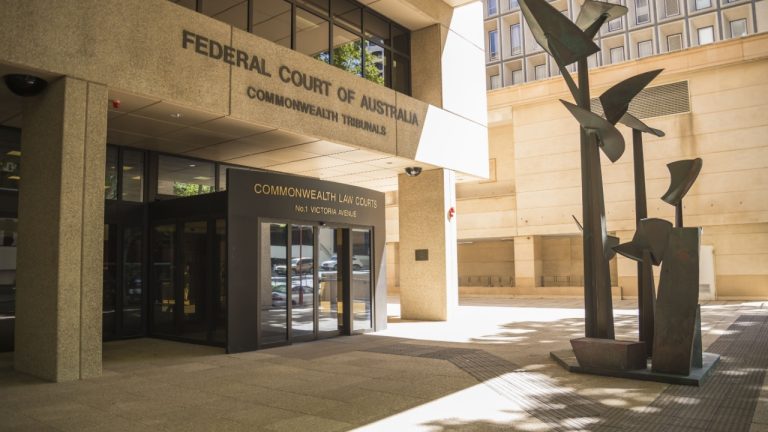 The chairman of the Australian Securities and Investments Commission (ASIC) has said his organization views cryptocurrency as a debenture hence it falls under regulatory purview. The ASIC chairman also argued that many cryptocurrency investors are unaware of what they are getting into. Crypto Falls Under the ASIC Regulatory Oversight Joe Longo, chairman of the Australian […]
The chairman of the Australian Securities and Investments Commission (ASIC) has said his organization views cryptocurrency as a debenture hence it falls under regulatory purview. The ASIC chairman also argued that many cryptocurrency investors are unaware of what they are getting into. Crypto Falls Under the ASIC Regulatory Oversight Joe Longo, chairman of the Australian […] The Australian securities regulator has said it will appeal the federal court’s dismissal of its civil penalty proceedings against Finder Wallet Pty Ltd. The regulator launched penalty proceedings against the crypto firm on Dec. 15, 2022, just days after Finder Wallet withdrew its Earn product. Product Finder Lacked the Necessary License or Authorization The Australian […]
The Australian securities regulator has said it will appeal the federal court’s dismissal of its civil penalty proceedings against Finder Wallet Pty Ltd. The regulator launched penalty proceedings against the crypto firm on Dec. 15, 2022, just days after Finder Wallet withdrew its Earn product. Product Finder Lacked the Necessary License or Authorization The Australian […] Monochrome Asset Management, an Australian investment management firm, has transferred its bitcoin exchange-traded fund (ETF) application to Cboe Australia. This move aligns with Monochrome Asset Management’s objective of broadening its footprint in Asian markets. Monochrome’s Commitment to Investors Evident in Application Transfer Monochrome Asset Management, an investment management firm based in Australia, announced on April […]
Monochrome Asset Management, an Australian investment management firm, has transferred its bitcoin exchange-traded fund (ETF) application to Cboe Australia. This move aligns with Monochrome Asset Management’s objective of broadening its footprint in Asian markets. Monochrome’s Commitment to Investors Evident in Application Transfer Monochrome Asset Management, an investment management firm based in Australia, announced on April […]
The new partnership offers investors extra choice and “mitigates the risks” of Australian crypto banking blocks, said Independent Reserve CEO Adrian Przelozny.
The CEO of Australian crypto exchange Independent Reserve says it has turned to payments giant PayPal to hedge against increasing bank restrictions against crypto exchange payments.
The exchange has partnered with PayPal to enable an on-ramp that will give Independent Reserve’s customers the ability to fund their crypto accounts directly with fiat from their PayPal wallet as well as using PayPal to withdraw funds from the crypto exchange.
Speaking to Cointelegraph, Independent Reserve CEO Adrian Przelozny said the new partnership offered Australian crypto investors extra choice, and also mitigates the future risks if the “rest of the banks really decide to close ranks against industry.”
As of today, at least five major Australian Banking institutions — Bendigo Bank, Commonwealth Bank, National Australia Bank (NAB), Westpac and ANZ — have introduced a series of limitations and blocks on customers looking to deposit and withdraw crypto from digital asset exchanges.
Commonwealth’s Banks restrictions are among the most stringent in the Australian landscape, with the institution imposing a $10,000 per month limit on all deposits to crypto exchanges. The other restrictions include blocking certain “high risk” payments and the removal of instant deposits from crypto exchanges.
Przelozny noted that this was the first example of a partnership between PayPal and a cryptocurrency exchange in the APAC region and praised the payments firm for choosing to approach the crypto sector from a positive standpoint.
“It’s really good to see a company like PayPal go against the grain and see the opportunity in the crypto industry — as opposed to what all the other banks are doing which views the industry solely as a risk,” he said.
“It’s a glass half empty versus a glass half full approach.”
Przelozny noted that there was a $5,000 deposit limit per day for funds sent to the exchange via PayPal or credit card, a far more generous limit than those imposed by some of the major banks.
Related: Australian banks claim 40% of scams ‘touch’ crypto as it defends restrictions
In a statement, Peter Cowan, the managing director PayPal Australia,said the partnership would help decrease the limitations and complexity associated with moving funds to and from digital asset exchanges for crypto investors in Australia.
“By integrating PayPal wallet for deposits and the PayPal platform for card processing, Independent Reserve and Bitcoin.com.au are making cryptocurrency easier for investors to access, while withdrawals to the PayPal wallet can take place in real time.”
Cowan also imparted his own bullish statements on digital currencies.
“At PayPal we believe that money will become digital – it’s a matter of when, not if. Digital currencies have the potential to drive innovation in financial technology and, as a flow on, to improve economic opportunities and financial inclusion.”
On Aug. 7 PayPal announced the launch of its own U.S.Dollar-pegged stablecoin PYUSD.
Deposit risk: What do crypto exchanges really do with your money?

The SHIB-themed diner serves hot wings, burgers and cocktails, but despite the branding, still trades mostly in fiat.
After a grand opening in March, Australian fast-food diner Shiba Wings has seen plenty of customers walking through the doors for their fried delectables.
Their appetite, however, hasn’t translated to crypto payments.
The Shiba Inu (SHIB) themed diner first opened its doors in Australia’s beachside city Surfers Paradise on March 18, 2023.
Speaking to Cointelegraph, the pseudonymous owner of the diner, “Elijah,” said their first week saw roughly $168 (250 Australian dollars) worth of crypto payments. In the months that followed total crypto payments dropped off, falling to an average of around $34 (50 Australian dollars) per week.

Most of these payments have been Shiba Inu, followed by Dogecoin (DOGE) and then Cardano (ADA).
However, Elijah doesn’t believe this is a cause for concern, stressing that crypto payments themselves aren’t the focal point of the business. Instead, Elijah said he's more focused on serving up good quality food and building the Shiba Wings brand itself.
“[Crypto payments] were more of an add-on feature. You generally don't want to be using your crypto to make payments, or you’ll end up like that Bitcoin guy that bought the Pizzas.”
“I actually advise people not to spend lots of crypto here. I say ‘listen I would keep that, probably not a coin you'd want to use on food, maybe use a different one that you hold a lot more of,’” Elijah said.
Elijah said his goal was to use the crypto element as a way to create a fast food franchise that could compete with McDonalds, mainly by leveraging the Shiba Inu brand.
The Shiba Inu community has a large, international following. At the time of publication, the Twitter accounts for the Shiba Inu Token and the Shib Army flex a combined audience of more than 4.1 million followers.
Our Shiba Wings vision and brand coming to life!
— shibawings (@shiba_wings) January 16, 2023
Counting down the days ⏰️
Location: Cavill Avenue, Surfers Paradise#Shibarium #ShibaArmy #shibainucoin #ShibaInu #cryptocurrency #Ethereum #Bitcoin #Binance #Crypto #chicken #WINGS #beer #ToTheMoon pic.twitter.com/aDIP7CM6CV
“I bought the Intellectual Property rights to Shiba Inu in Australia,” Elijah said, noting that he plans to leverage the ownership of the logo and associated branding materials to launch a series of Shiba Wings franchises by the end of the year.
“My goal is to create the next fast food franchise concept to compete against a Maccas, but obviously giving it a very different feel and spin, having the crypto element as an innovation in the fast food space.”
Elijah also pointed to Shiba Wings’ upcoming NFT release which will allow for holders to own a share of the business itself. Elijah says that the NFT rollout will see “15% ownership of every restaurant given to the community,” essentially making them quasi-shareholders which will see them be paid quarterly dividends.
He added that there will soon be a separate Shiba Wings token that will also provide holders with in-store benefits.
Related: Memecoins: From memes to multibillion-dollar pumps, scams and rug pulls
According to an August, 2022 survey from crypto exchange Crypto.com, 55% of Australian merchants and consumers were interested in purchasing goods and services in cryptocurrency, with almost half (47%) of all surveyed merchants saying that they were ready to accept crypto payments within a year.

AI Eye: Make 500% from ChatGPT stock tips? Bard leans left, $100M AI memecoin

AUSTRAC also urged financial institutions from debanking clients who may be engaged in suspicious account activity, as a mistake could be costly to “Australia’s economy.”
Australian financial compliance enforcement agency AUSTRAC has released two new guides to help entities to spot when customers are using crypto for illicit means, or when they are being forced to pay the creators of ransomware.
But it warned that debanking customers merely on suspicion of such activity was a harmful practice with serious negative effects.
In an announcement posted earlier today, AUSTRAC noted that the growing acceptance, value and adoption of crypto and blockchain tech has been accompanied by an increase in cybercrime.
“Cyber-enabled crime is an increasing threat to Australians. According to the Australian Cyber Security Centre (ACSC), 500 ransomware attacks were reported in the 2020-21 financial year, an increase of nearly 15 percent from the previous year,” AUSTRAC stated.
The ransomware and “criminal abuse of digital currencies” guides are not only designed to help spot bad actors, but also to make it easier to report suspicious activity to AUSTRAC — something which businesses must do after reporting the matter to the police.
Blockchain Australia CEO Steve Vallas welcomed the new guides, stating that the “use of digital currencies for criminal purposes has no place in our sector.”
“Open dialogue, pro-active guidance and strong relationships between Government and industry are necessary to ensure businesses can identify and report behavior that puts Australians at risk of harm.”
In the ransomware guide, AUSTRAC highlighted multiple indicators that a customer may be quickly trying to pay a ransom. The list included behaviors such as impatience over the speed of transactions, sudden large transactions from newly onboarded businesses and transfers of one's entire holdings with a lack of account activity afterward.
While the indicators might seem obvious, AUSTRAC pointed out that most “victims are often reluctant to report” as they are looking to get their businesses out of the clutches of attackers and up and running again as soon as possible.
“Where possible, encourage your customers to report ransomware incidents to the ACSC’s ReportCyber service and law enforcement,” the guide reads.
In the illicit crypto use-focused guide, AUSTRAC listed activities such as tax evasion, money laundering, scams and the purchase of illegal products on the darknet. The regulator paid the most attention to money laundering, as it gave a rundown of its key components which include “placement, layering and integration.”
After purchasing digital assets with fiat (placement), the criminal will then attempt to convert the assets across different accounts and platforms (layering) to “distance the funds from the source.”
Decentralized finance (DeFi) platforms, mixers and privacy coins were stated as methods to do so. Finally, the bad actor will use the final variant of the funds to reintroduce the capital into traditional financial services or products (integration).
“The conversion to and from government-issued currency is the point where a criminal is most exposed and identifiable,” the guide reads.
Related: Australia’s first Bitcoin ETF could attract $1 billion after launch next week
Notably, the guide also urged traditional financial institutions to steer away from debanking customers, as this has been a key issue in the local crypto sector and could have major consequences if a lawful person has incorrectly been identified as a criminal.
“Debanking legitimate and lawful businesses can negatively impact individuals and businesses. It can also increase the risks of money laundering and terrorism financing and negatively impacts Australia’s economy,” the guide warns.

Speaking on the partnership with the NRL, Swyftx CEO Ryan Parsons said that the “mass appeal of sport means it’s a hugely important way for exchanges to announce themselves.”
Brisbane-based crypto exchange Swyftx has penned a major three-year sponsorship deal with the Australian National Rugby League (NRL).
Swyftx is registered in Australia and New Zealand and offers trading services for around 300 digital assets. The firm was founded in 2018 and the NRL deal marks another major milestone for promoting the local crypto and blockchain sector to sports fans, with the Australian Football League women’s competition already signing with Crypto.Com for $25 million over five years.
The latest deal will cover NRL, Women’s NRL (NRLW), State of Origin and All-Star games. There is also an option for a fourth-year extension to the end of 2026.
Swyftx’s branding is set to be featured on LED signage in stadiums and virtually via TV broadcasts, while its name will also be displayed on the NRL's in-game review and decision board which is set to be named the “Swyftx Bunker” in 2023.
Swyftx CEO Ryan Parsons told Cointelegraph that Australia is “witnessing an almost overnight mainstreaming of crypto” as he emphasized the significance of the deal:
“The partnerships we’re seeing at the moment represent a sign of growing confidence in the future of crypto and its potential for universal adoption. The real question now isn’t whether cryptocurrency is here to stay, but how quickly it reshapes the future of the global economy and traditional financial services.”
Questioned on why crypto exchanges such as Swyftx, Crypto.com and FTX actively seek out sporting partnerships, Parsons outlined that the “mass appeal of sport means it’s a hugely important way for exchanges to announce themselves” and obtain mainstream recognition from the traditional finance sector.
“Exchanges are effectively saying that ‘we’re here and we’re supporting people to embrace new technologies and opportunities,’” he said.
Related: Crypto at the Olympics: NFT skis, Bitcoin bobsledders and CBDC controversy
Moving forward in 2022, Parsons stated that he expects the crypto sector to take market share from banks and traditional finance :
“We saw that process begin in 2021, it’ll only extend and deepen into this year as you get more product offerings into the market that provide hyper-competitive alternatives to existing bank products.”
The CEO stated that crypto is no longer a niche topic in Australia, and that the target demographic is becoming harder to define as the market sees rapid adoption by all kinds of people across the country.
“We’re also seeing a shift in demographic reach so you can no longer really point to a ‘typical’ crypto owner in the country. Our expectation is that regulation could accelerate this process, especially in terms of business adoption. But it really does depend on the form the regulation takes,” he said.

“Our main concern is that many taxpayers believe their cryptocurrency gains are tax-free or only taxable when the holdings are cashed back into Australian dollars,” said the ATO commissioner.
The Australian Tax Office (ATO) says it can’t rely on crypto investors to keep track of their crypto transactions and profits — even though most investors try their best.
Speaking at the 14th International ATAX Conference on Tax Administration conference on Nov. 23, ATO commissioner Chris Jordan stressed that many new crypto investors may not entirely understand their tax reporting obligations:
“In a sector that is growing rapidly with new investors, we can’t rely on taxpayers knowing they need to keep records of their investment income and capital gains and disclose it on their tax returns.”
“Our main concern is that many taxpayers believe their cryptocurrency gains are tax-free or only taxable when the holdings are cashed back into Australian dollars,” he added.
Jordan explained that the ATO has been working on ways to “nudge” people in the right direction such as pre-filling data on tax returns to prompt crypto users to report their investments.
The commissioner also said the ATO has ramped up its trading data matching capabilities in 2021 by sourcing information from cryptocurrency demand-side platforms (DSPs), share registries and brokers.
“We’ve expanded our data matching protocols to get more data from third parties to assist with emerging investments like cryptocurrency.”
He added that, “We are working hard to improve the way we collect, manage, share, and use data, but we are just scratching the surface.”
Related: Reserve Bank warns Aussies over punting on ‘fad driven’ cryptocurrencies
Jordan did note however that “most people do the right thing” as tax reporting compliance, or the “tax performance” of individuals and small businesses in Australia is high with “little or no intervention” from the ATO at 94% and 87% respectively.
A firm that the ATO may call on in future is the Commonwealth Bank of Australia’s partner Chainalysis.
On Nov. 24, Chainalysis’ country manager in Australia and New Zealand Todd Lenfield told the Australian Financial Review that his firm is hoping to provide key expertise to AUSTRAC and the ATO.
“We want to have conversations with AUSTRAC about what they are looking to regulate and explain to the tax office the lessons that can be learned from what the IRS is doing. We can take experience we have got in the space, and provide a local flavor,” he said.
The firm currently provides blockchain analysis services for the U.S. Federal Bureau of Investigation and Internal Revenue Service, it also investigated Russia-based crypto business Suex OTC which was targeted by the U.S. Treasury Department in September over facilitating transactions for ransomware payments.

“It’s still a very volatile investment, so any allocation exposure we make to cryptocurrencies is likely to be part of our diversified portfolio,” said Rest Super’s CIO Andrew Lill on Tuesday.
Australian superannuation fund Rest Super is set to become the first retirement fund in the country to invest in cryptocurrencies.
The fund has more than $46.8 billion worth of assets under management (AUM) and around 1.8 million members. Superannuation is the equivalent of a 401k or Individual Retirement Account in the U.S. and is compulsory for all employees. Until now the $2.4 trillion sector has been extremely cautious about cryptocurrency.
During Rest Super’s annual general meeting on Nov. 23, the firm’s chief investment officer Andrew Lill told members that the company sees digital assets as an “important part” of its portfolio moving forward but will proceed “carefully and cautiously,” noting that:
“It’s still a very volatile investment, so any allocation exposure we make to cryptocurrencies is likely to be part of our diversified portfolio as initially a fairly small allocation that may, over time, build.”
Lill went on to add his view that offering members exposure to crypto and blockchain tech could provide a “stable source of value” amid a time in which investors are flocking to crypto as a hedge against fiat-based inflation.
“I do think that, in an era of inflation, it could be a potentially good place to invest,” he said.
Following the CIO’s speech, a Rest spokesperson clarified in a statement that it is “certainly considering cryptocurrencies as a way to diversify our members’ retirement savings [but] will not be investing in the immediate future.”
“We are currently conducting extensive research into the asset class prior to making any decisions,” the spokesperson said. “We are also considering the security and regulatory aspects of investing in this class."
The comments are in contrast to those from Australian Super this week, with the chief executive of $167 billion fund Paul Schroder stating on Monday that “we don’t see cryptocurrency as investible for our members.”
Last month, it was reported that state owned investment fund Queensland Investment Corporation (QIC) was looking at gaining crypto exposure. However the firm told Business Insider this week that the reports were “incorrectly implied" and played down any digital asset adoption moves.
QIC’s head of currency Stuart Simmons also said while he expects superannuation funds to adopt crypto in the future, it’s “ probably going to represent a trickle, rather than a flood.
The discussion comes at a potentially bullish time for the Australian crypto market, following the development of extensive regulatory proposals in October by a Senate committee as part of a push to develop the nation into the next crypto hub, along with Commonwealth Bank of Australia’s (CBA) move to provide crypto trading via its banking app earlier this month.
Related: Australian Senator says DeFi is 'not going away any time soon'
While the country awaits to see what major traditional finance firm will be the next to embrace crypto, the CBA’s CEO Matt Comyn stated earlier this week the bank was more motivated by FOMO as opposed to being worried about risks associated with digital assets.
“We see risks in participating, but we see bigger risks in not participating,” he said.

“We see risks in participating, but we see bigger risks in not participating,” said CBA CEO Matt Comyn on the bank’s recent crypto adoption play.
Matt Comyn, the CEO of the Commonwealth Bank of Australia (CBA), said that the bank is more concerned about the risks of missing out on crypto than those associated with its adoption.
The CBA is set to become the first of the “big four” banks in Australia to offer crypto-based services, after the company announced on Nov. 3 that it will support the trading of 10 digital assets directly via its banking app.
Speaking with Bloomberg TV on Friday, Nov. 19, Comyn was questioned on the CBA’s take on the crypto sector, with the CEO noting that:
“We see risks in participating, but we see bigger risks in not participating. It's important to say that we don’t have a view on the asset price itself, we see it as a very volatile and speculative asset, but we also don’t think that the sector and the technology is going away anytime soon.”
Comyn also suggested that there will be much more to come from the CBA’s crypto adoption play, as he highlighted that the bank sees many use cases from blockchain tech, along with strong demand from consumers.
“And so we want to understand it, we want to provide a competitive offering to customers with the right disclosure around risks. We want to build capability in and around DLT and blockchain technology,” he added.
While the CBA appears to be bullish on crypto and distributed ledger tech, the Australian Securities and Investments Commission (ASIC) has urged for investor caution while also noting that it is unable to oversee the sector.
Speaking at the Australian Financial Review Super & Wealth Summit on Nov. 22, ASIC chairman Joe Longo suggested that the financial enforcer cannot regulate crypto as the asset class currently does not fall under the scope of “financial products” in Australia:
“The demand-driven nature of the rush into crypto has thrown up some unique challenges. At present many crypto-assets are probably not ‘financial products’, making it difficult for financial advisers to offer counsel.”
“ASIC has already provided some guidance on exchange-traded funds linked to crypto-assets — they at least are financial products and traded on a licensed exchange, so there will be some protections there — but for the most part, for now at least, investors are on their own,” he added.
Related: Reserve Bank warns Aussies over punting on ‘fad driven’ cryptocurrencies
In Longo’s personal view, he urged local investors to pursue crypto with great caution, noting that “the maxim ‘don’t put all your eggs in one basket’ comes to mind.” However, he also emphasized that the crypto proposals put forward by the Australian Senate last month was the right move for the local climate.
“Wherever we land from a policy perspective, Senator Bragg’s committee was right to highlight the fact that crypto is on our doorstep, here and now, and being driven by extraordinary consumer and investor demand,” he said.